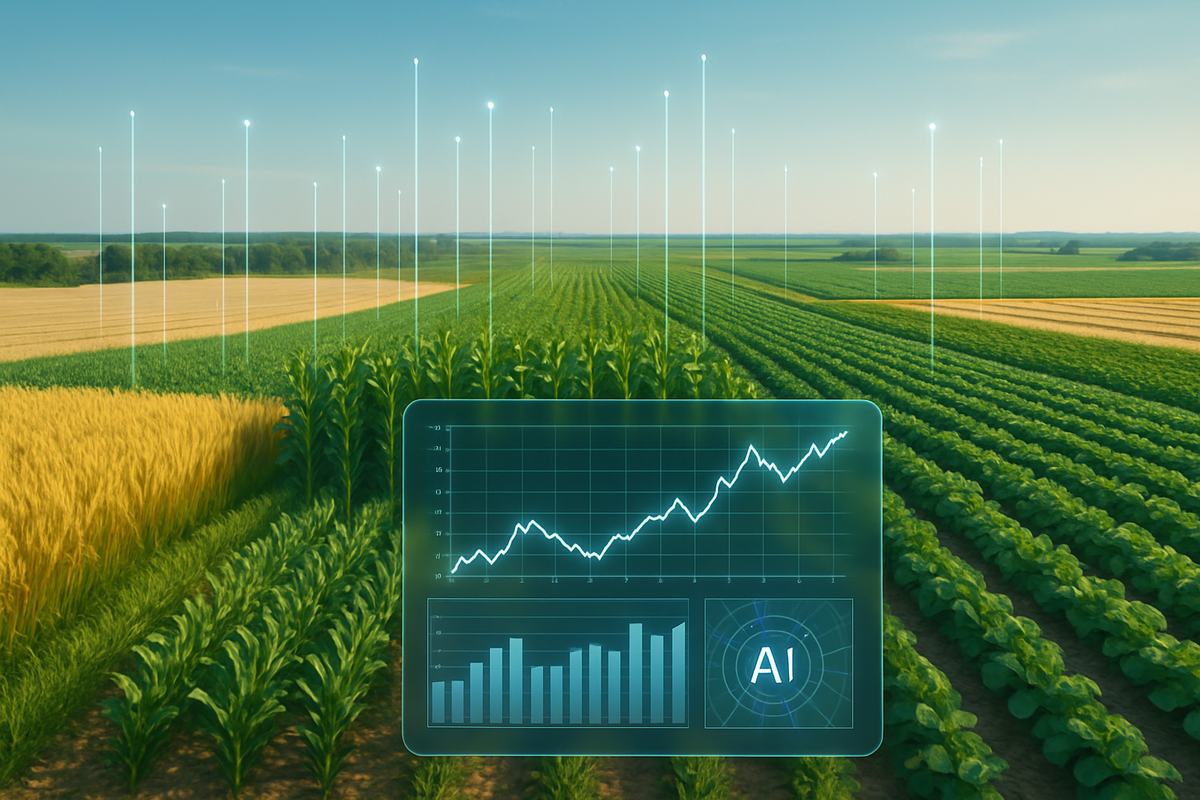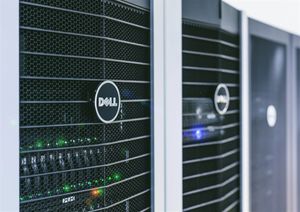
The agricultural sector, long reliant on traditional forecasting methods, is on the cusp of a significant transformation. Helios AI, an innovative AgTech startup, has successfully secured $4.7 million in seed funding to launch Helios Horizon, an AI-powered copilot designed to provide unparalleled accuracy in agricultural commodity price prediction. This substantial investment is set to inject much-needed technological advancement into a food supply chain increasingly challenged by climate change and macroeconomic volatility. The immediate implication is a potential paradigm shift in how food businesses, from independent farmers to global retailers, manage risk and optimize their operations, promising to democratize access to sophisticated market intelligence previously available only to large institutional players.
The $4.7 million seed funding round was spearheaded by Collide Capital, with significant contributions from S&P Global Ventures, Stray Dog Capital, Angeles VC, Equity Alliance, and Supply Change Capital. This capital infusion coincides with the official launch of Helios Horizon, an AI multi-agent system that integrates agri-food price forecasting with critical climate predictions. Helios AI boasts that its copilot can process billions of signals, offering price forecasting capabilities up to five times more accurate than current industry standards, which often fall short by relying on basic seasonality and traditional supply/demand inputs. The platform aims to provide instant, digestible insights for over 400 agricultural products, including fruits and vegetables, up to 12 months in advance. Crucially, Helios AI is committed to making these advanced insights accessible and affordable, reportedly at $299 per month, targeting a broad spectrum of users from small-scale farmers and local restaurant owners to large distributors and nationwide retailers. This accessibility underscores a strategic move to empower a wider array of stakeholders to navigate the complexities of volatile agricultural markets proactively.
Navigating the Shifting Tides: Winners and Losers in an AI-Powered Agricultural Market
The advent of Helios Horizon could redraw the competitive landscape for numerous public companies across the agricultural value chain. Early adopters stand to gain significant advantages, while those slow to integrate such advanced AI solutions may find themselves at a disadvantage.
In the Agricultural Sector, major agribusiness giants like Archer-Daniels-Midland Company (NYSE: ADM), Bunge Global SA (NYSE: BG), and The Andersons, Inc. (NASDAQ: ANDE) could leverage Helios Horizon to optimize their sourcing, trading, and processing decisions, leading to improved margins and reduced risk exposure. Similarly, crop input suppliers such as Corteva, Inc. (NYSE: CTVA), Nutrien (NYSE: NTR), and Mosaic (NYSE: MOS) could better anticipate demand for specific products based on predicted crop trends and commodity prices, enhancing their production and inventory strategies. Farming equipment and technology providers like Deere & Company (NYSE: DE) and AGCO Corporation (NYSE: AGCO) might see increased demand for equipment that can integrate with or benefit from such precise data, potentially fostering new partnerships or product lines. Conversely, smaller agricultural firms or those deeply entrenched in traditional forecasting methods might struggle to compete against the agility of AI-equipped rivals, facing increased market efficiency that could erode their historical competitive edges.
Within Food Processing, major players like Nestlé S.A. (SWX: NESN), Mondelez International Inc. (NASDAQ: MDLZ), and Kraft Heinz Co. (NASDAQ: KHC) could significantly optimize their procurement strategies, inventory management, and even new product development by accurately forecasting raw material costs. This could lead to more stable product pricing, protected profit margins, and a more resilient supply chain. However, the increased market transparency driven by widespread AI adoption might also lead to heightened price sensitivity from procurement teams, potentially squeezing margins for suppliers who lack similar forecasting capabilities.
The Logistics Sector, including companies like Union Pacific Corporation (NYSE: UNP) and A.P. Moller Maersk (CPH: MAERSK-B), could benefit from optimized freight planning and proactive network adjustments based on anticipated commodity volumes and routes. This could lead to more efficient asset utilization and reduced spoilage of perishable goods. Third-party logistics (3PLs) such as C.H. Robinson Worldwide, Inc. (NASDAQ: CHRW) might find new opportunities to offer AI-integrated services to their agricultural clients, creating a competitive differentiator. However, clients armed with AI-driven forecasts will likely demand even greater efficiency and cost-effectiveness, putting pressure on logistics providers to adapt rapidly.
Finally, Agricultural Data and Technology Providers, including precision agriculture companies like Trimble Inc. (NASDAQ: TRMB) and enterprise software giants like IBM Corporation (NYSE: IBM), could find partnership and integration opportunities with Helios AI. The need for robust data to feed AI models will likely drive demand for IoT sensors, satellite imagery, and data analytics platforms. Yet, Helios Horizon could also pose a direct competitive threat to existing data providers offering less sophisticated prediction tools, potentially leading to consolidation or a "walled garden" effect if Helios AI establishes a dominant platform.
A New Era of AgTech: Broader Significance and Industry Transformation
Helios AI's entry into the market is not an isolated event but rather a powerful testament to several converging industry trends shaping the future of agriculture. Its AI copilot perfectly encapsulates the broader shift towards data-driven decision-making, a cornerstone of modern AgTech. The global agricultural sector is increasingly embracing technology to enhance efficiency, ensure sustainability, and boost productivity to meet the demands of a growing population amidst finite resources and a changing climate. Helios Horizon's ability to leverage vast datasets—including weather, soil conditions, satellite imagery, market reports, and even geopolitical developments—to provide actionable insights is a fundamental step in this digital transformation.
This innovation fits squarely within the burgeoning field of AI in Agriculture, where predictive analytics is a primary application. AI's capacity to forecast crop yields, anticipate supply shortages, and predict market prices by analyzing complex, multi-layered data is revolutionizing how agricultural stakeholders manage risk and plan for the future. Helios Horizon's use of machine learning and deep learning to process massive datasets, identify subtle patterns, and adapt to evolving market conditions represents the cutting edge of this trend. Furthermore, its focus on integrating climate risk data directly addresses the critical need for Climate Resilience in agriculture. By anticipating the impacts of extreme weather events and long-term climate variability on commodity prices and supply, Helios Horizon empowers farmers and agribusinesses to make proactive decisions regarding planting schedules, crop varieties, and resource management, helping to mitigate risks and adapt to changing environmental conditions. This indirect support for sustainable practices, by enabling more informed decisions about resource use and crop selection, could have significant long-term benefits for the environment and food security.
The potential ripple effects extend beyond direct users. Competitors in the agricultural data and forecasting space will be compelled to innovate rapidly or risk obsolescence. Traditional market analysis firms may find their methodologies challenged by the speed and accuracy of AI-driven predictions. Regulatory bodies might also begin to examine the implications of such powerful predictive tools on market fairness, data privacy, and potential for market manipulation, similar to how high-frequency trading has been scrutinized in financial markets. Historically, advancements in forecasting, such as precise weather predictions, have had transformative impacts on industries like shipping and aviation. Helios Horizon could similarly reshape the agricultural commodity markets, leading to more efficient, albeit potentially more volatile, trading environments as all participants react more swiftly to shared, highly accurate information.
The Road Ahead: Opportunities, Challenges, and Strategic Imperatives
The launch of Helios Horizon marks a pivotal moment, opening a spectrum of short-term and long-term possibilities for Helios AI, the agricultural market, and investors. In the short term, Helios AI will likely focus on refining its AI models, expanding its data integration capabilities, and growing its user base. The affordability of its service suggests an aggressive strategy to rapidly penetrate the market, aiming to become an indispensable tool for a wide range of agricultural stakeholders. Early adoption by key players will be crucial for establishing credibility and market leadership. For the market, the immediate future could see increased efficiency in procurement and trading decisions, potentially leading to a more stable food supply chain by reducing sudden price shocks and supply disruptions.
Longer term, Helios AI could expand its offerings beyond price prediction, potentially integrating with farm management systems for more holistic decision-making, or even venturing into direct supply chain optimization services. The company might also explore partnerships with major AgTech firms or even agricultural equipment manufacturers to embed its predictive capabilities directly into farming operations. However, challenges will undoubtedly emerge. Data privacy and security will be paramount, especially as Helios AI integrates vast and sensitive agricultural data. The accuracy of its predictions will face continuous scrutiny, and any significant forecasting errors could erode trust. Furthermore, the agricultural sector is diverse, and tailoring the AI copilot to meet the nuanced needs of different regions, crops, and market structures will require ongoing development and localization.
For investors, the emergence of Helios AI presents both opportunities and risks. The AgTech sector is ripe for disruption, and companies that can effectively leverage AI to solve pressing industry problems, such as commodity price volatility and climate resilience, are well-positioned for growth. However, the competitive landscape for AI solutions is intensifying, and Helios AI will need to demonstrate sustained innovation and scalability. Potential strategic pivots for existing companies might include investing in their own AI capabilities, forming partnerships with AgTech innovators, or acquiring promising startups to integrate advanced forecasting into their operations. The market opportunities that may emerge include new financial instruments based on AI-driven predictions, specialized insurance products for climate-related agricultural risks, and enhanced traceability solutions throughout the food supply chain.
Concluding Thoughts: A Resilient Future for Food
Helios AI's successful seed funding and the launch of Helios Horizon represent a significant stride towards a more resilient and efficient global food supply chain. The key takeaway is the increasing recognition of AI's transformative power in agriculture, moving beyond mere automation to sophisticated predictive intelligence. This event underscores a broader trend where technology is becoming an essential tool for navigating the complexities of climate change, market volatility, and global food security.
Moving forward, the agricultural market will likely become more dynamic and data-driven. Investors should closely watch the adoption rates of Helios Horizon and similar AI solutions, as well as their proven accuracy and return on investment for users. The ability of these technologies to integrate seamlessly into existing agricultural workflows and provide genuinely actionable insights will determine their long-term impact. Furthermore, continued innovation in data collection (e.g., advanced satellite imagery, IoT sensors) and AI model development will be critical drivers of future growth in this space. Ultimately, Helios AI's initiative signifies a future where informed decision-making, powered by artificial intelligence, can help secure the world's food supply against an increasingly unpredictable environment, fostering greater stability and profitability for all stakeholders in the agricultural ecosystem.
This content is intended for informational purposes only and is not financial advice





